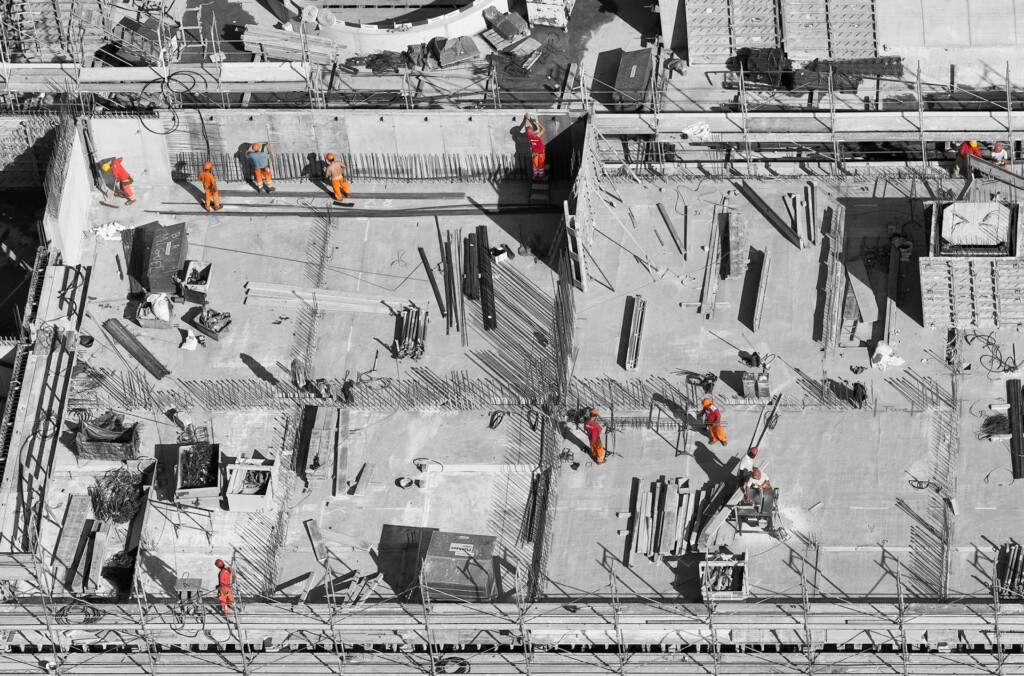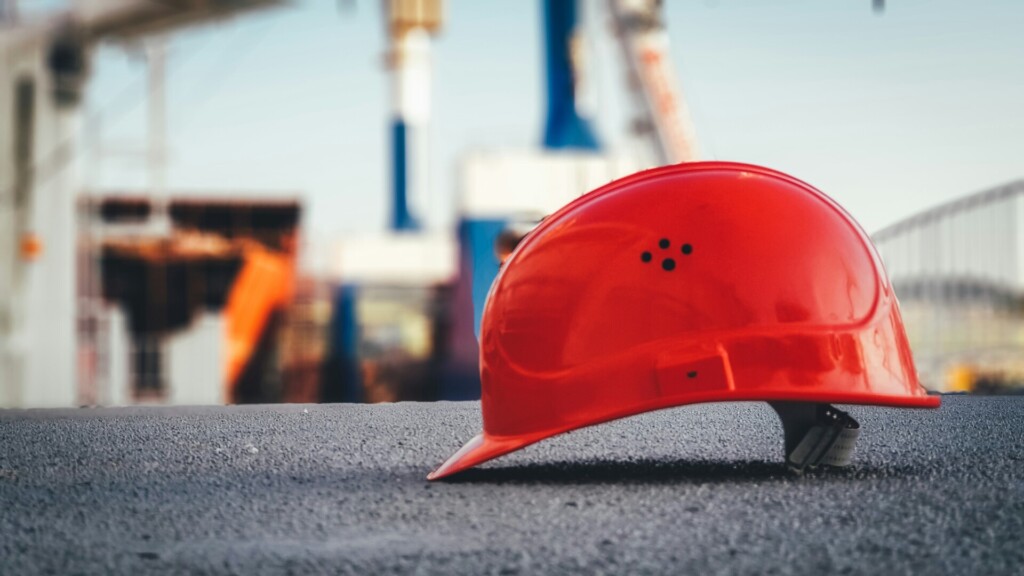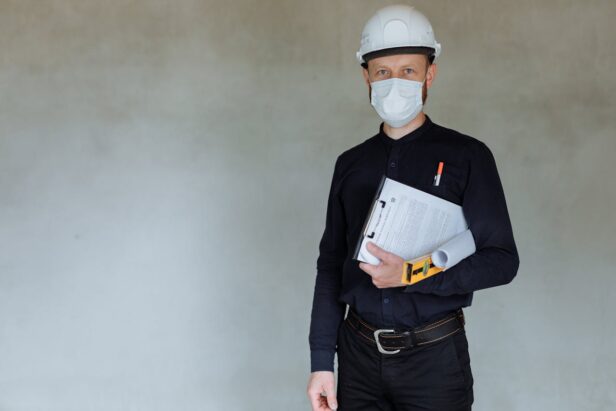Commercial construction contractors near me covers a wide range of local teams specializing in offices, labs, healthcare facilities, hospitality venues, retail buildouts, industrial facilities, and tenant improvements. These contractors handle everything from ground-up construction to comprehensive renovations across multiple commercial sectors.
Local directories provide contractor listings, customer reviews, project galleries, and frequently asked questions to help you evaluate options. Start by defining your project scope, budget constraints, and timeline requirements, then shortlist firms with proven experience in your specific sector and schedule discovery calls to discuss your vision.
What Services Should Local Commercial General Contractors Provide?

We deliver comprehensive commercial construction services that span the entire project lifecycle. Effective general contractors manage everything from initial planning through final handover. Professional contractors provide transparency, maintain safety standards, and coordinate all aspects of your build.
Commercial contractors handle complex projects requiring specialized knowledge and coordination. We work with developers and property owners to deliver functional, code-compliant spaces. The right contractor provides predictable timelines, accurate budgets, and quality execution.
Preconstruction Planning
We start every project with thorough preconstruction planning. This phase includes site evaluation, feasibility studies, and constructability reviews. We analyze your project requirements and identify potential challenges before construction begins.
Preconstruction services include value engineering and design collaboration. We work with architects and engineers to optimize your design for cost and buildability. This upfront planning reduces change orders and keeps projects on track.
Site assessments evaluate existing conditions, utilities, and access requirements. We identify any issues that could impact construction schedules or costs. Early planning prevents surprises and ensures smooth project execution.
Cost Estimating and Budgeting
Detailed cost estimating forms the foundation of successful commercial projects. We provide accurate, line-item estimates based on current market conditions. Our estimates include labor, materials, equipment, permits, and contingencies.
We develop comprehensive budgets that align with your financial parameters. Budget tracking continues throughout construction to monitor spending and prevent overruns. Regular reporting keeps you informed of any cost variations.
Market knowledge helps us anticipate price fluctuations for materials and labor. We provide guidance on cost-effective alternatives without compromising quality. Transparent pricing eliminates surprises and builds trust.
Construction Scheduling and Project Management
We create detailed construction schedules that coordinate all project activities. Scheduling includes material deliveries, subcontractor coordination, and inspection timing. Proper scheduling maximizes efficiency and minimizes delays.
Project management encompasses daily oversight and progress monitoring. We track milestones, manage resources, and communicate regularly with all stakeholders. Our project managers have extensive local experience and understand permit processes.
Construction management involves coordinating multiple trades and ensuring quality standards. We maintain communication between all parties to prevent conflicts and delays. Regular progress meetings keep everyone aligned on project goals.
OSHA Safety and Site Supervision
OSHA-aligned safety programs protect workers and reduce liability. We implement comprehensive safety protocols and conduct regular training. Our safety record reflects our commitment to accident prevention.
Site supervision ensures work meets specifications and safety requirements. We maintain qualified supervisors on-site throughout construction. Daily inspections identify and address issues before they become problems.
Safety documentation includes incident reporting and compliance tracking. We coordinate with safety inspectors and maintain all required certifications. Proper safety management protects everyone involved in your project.
Bid Management and Procurement
Bid management involves sourcing qualified subcontractors and suppliers. We maintain relationships with reliable trade partners who understand local requirements. Competitive bidding ensures fair pricing and quality work.
Procurement includes material sourcing, ordering, and delivery coordination. We manage lead times for specialty items and coordinate deliveries with construction schedules. Bulk purchasing often reduces material costs.
Subcontractor management encompasses vetting, contracting, and performance monitoring. We verify licenses, insurance, and safety records before hiring trades. Regular oversight ensures subcontractors meet project standards.
Permitting and Regulatory Compliance
Permitting liaison services navigate complex local regulations and approval processes. We prepare and submit permit applications and coordinate with building officials. Our local experience expedites approvals and prevents delays.
Building code compliance ensures your project meets all safety and structural requirements. We stay current with local codes and work with inspectors throughout construction. Proper compliance protects your investment and ensures occupancy approval.
Regulatory coordination includes environmental permits, utility connections, and zoning approvals. We manage all required inspections and address any compliance issues. Comprehensive permitting prevents costly rework and delays.
Construction Execution and Project Closeout
Construction execution transforms plans into reality through skilled coordination and oversight. We manage all construction activities while maintaining quality and safety standards. Regular progress updates keep you informed throughout the build.
Quality control includes material inspections, workmanship reviews, and testing coordination. We ensure all work meets specifications before proceeding to the next phase. Documentation supports warranty claims and future maintenance.
Project closeout involves final inspections, systems testing, and documentation handover. We conduct thorough walkthroughs to identify and correct any deficiencies. Post-construction services include warranty support and maintenance guidance.
Specialized Services
Tenant improvement services adapt existing spaces to meet specific business needs. We handle everything from minor modifications to complete build-outs. Design/build capabilities streamline the development process.
Site selection support helps identify properties that meet your operational requirements. We evaluate buildings for suitability, accessibility, and expansion potential. Early involvement in site selection prevents costly modifications later.
Post-construction services include warranty support, maintenance planning, and future expansion coordination. We maintain relationships with our clients beyond project completion. Ongoing support protects your investment and facilitates future growth.
What Are The Typical Phases Of A Commercial Project Near Me?
Commercial construction follows five distinct phases that provide structure and accountability throughout your project. Each phase builds on the previous work while setting up requirements for what comes next.
Preconstruction Planning
We begin with comprehensive site assessments to evaluate existing conditions, utilities, and potential constraints. This phase includes defining your project scope, establishing realistic budget parameters, and developing the strategic plan that guides all subsequent work. Site surveys identify any surprises early, while feasibility studies confirm your project vision aligns with practical execution requirements.
Risk management planning occurs during preconstruction, where we analyze potential challenges and develop mitigation strategies. We also assemble the core project team, including key subcontractors, to ensure everyone understands their roles and responsibilities from the start.
Procurement Phase
We source materials, equipment, and specialty subcontractors based on your project specifications and quality standards. Long-lead materials receive priority attention since items like custom millwork, specialized HVAC equipment, or architectural elements can significantly impact your schedule if not ordered early.
Our procurement process includes vetting subcontractors for quality, safety records, and financial stability. We negotiate contracts that protect your interests while maintaining competitive pricing and clear accountability measures.
Permitting Process
We prepare and submit all required documentation to meet local building codes and regulatory requirements. This includes coordinating with municipal authorities, addressing plan review comments, and securing all necessary approvals before construction begins.
The permitting timeline varies significantly based on project complexity and local jurisdiction requirements. We manage this process proactively to prevent delays from impacting your construction schedule.
Construction Phase
Physical work begins with demolition and site preparation, followed by structural modifications, mechanical and electrical systems installation, and finish work. We coordinate closely with owner vendors for IT, audio-visual, security systems, and furniture to ensure seamless integration.
Quality control inspections occur throughout construction, with safety protocols maintaining OSHA compliance at all times. Regular progress meetings keep you informed while allowing for real-time adjustments when needed.
Project Closeout
Final inspections verify all work meets specifications and building codes before we conduct comprehensive walkthroughs with your team. We handle the formal handover process, including training on building systems and delivery of all warranties and documentation.
Post-completion support addresses any punch list items and ensures smooth transition to occupancy. We remain available for warranty work and system adjustments as your team settles into the completed space.
What Drives Cost And Schedule For Commercial Construction Near Me?

Commercial construction costs and timelines stem from multiple interconnected factors that we encounter on every project. Project scope determines the foundation of both budget and schedule considerations.
Scope of work establishes the baseline for all other cost drivers. A tenant improvement covering 5,000 square feet requires different resources than a ground-up office building spanning 25,000 square feet. We factor in demolition requirements, structural modifications, and system installations when establishing scope-driven costs.
Project size directly correlates with material quantities, labor hours, and coordination complexity. Larger spaces demand more extensive utility runs, additional permits, and longer construction sequences. Size also influences equipment needs, from small tools for tenant improvements to cranes for multi-story construction.
Design complexity affects both cost and schedule through specialized materials, custom fabrication, and skilled trades requirements. Simple rectangular layouts with standard finishes move faster than curved walls, complex ceiling details, or integrated technology systems. We see timeline extensions when projects require custom millwork, specialty lighting, or advanced HVAC configurations.
Materials costs fluctuate based on specifications, availability, and market conditions. Steel prices have experienced substantial fluctuations, ranging from $425 per ton in mid-2020 to approximately $912 per ton as of February 2025. We track these variables to provide accurate pricing and manage procurement timing.
Labor costs reflect local market conditions and skilled trades availability. Urban locations like San Jose experience higher wage rates due to living costs and construction demand. Specialized trades command premium rates, particularly for healthcare facilities, laboratories, or technology installations requiring specific certifications.
Urban location factors significantly impact both cost and schedule. Dense urban areas present logistical challenges including limited staging areas, restricted delivery windows, and coordination with adjacent properties. These constraints often require premium scheduling and specialized equipment, driving up project costs.
Permits and fees vary by jurisdiction and project type. San Jose’s permit process involves multiple departments for complex projects, with fees scaling based on construction value. We coordinate early with local authorities to minimize approval delays that could compress construction schedules.
Timeline pressure creates cost escalation through schedule acceleration. Fast-track projects require overtime labor, expedited material delivery, and additional coordination resources. Rush schedules often demand parallel work sequences that increase labor costs and coordination complexity.
Recent San Jose data illustrates these cost drivers in practice. Projects range from approximately $150,000 for basic tenant improvements to over $1.25 million for comprehensive buildouts. Average costs hover around $78.28 per square foot, though this varies significantly based on the factors above. Timeline data shows projects extending up to 50 weeks for complex installations, depending on project scale and approval processes.
How Should I Evaluate And Compare Commercial Contractors (Including EB3 Construction)?
Selecting the right commercial contractor requires a systematic approach that balances technical competency with relationship fit. We recommend developing a structured evaluation process that examines both the tangible qualifications and the intangible qualities that determine project success. This evaluation framework helps you move beyond surface-level considerations to assess the deeper capabilities that matter most.
Core Evaluation Criteria For Commercial Contractors
Similar project experience serves as the foundation of our contractor evaluation process. We look for contractors who have successfully delivered projects in your specific sector, whether that’s healthcare facilities, office buildouts, or retail spaces. A contractor’s portfolio should demonstrate not just volume but relevance to your project type and scale.
Clear communication and pricing transparency distinguish professional contractors from those who create confusion and surprises. During initial discussions, we evaluate how contractors explain their processes, respond to questions, and present cost information. Transparent contractors provide detailed breakdowns of labor, materials, and project phases without evasive language or hidden fees.
The project manager and superintendent represent the day-to-day leadership your project will receive. We assess their local experience, technical credentials, and communication skills since these individuals will coordinate every aspect of construction. Strong project managers demonstrate familiarity with local permitting processes, supplier networks, and regulatory requirements specific to your area.
Quality Indicators And Relationship Assessment
Quality of workmanship becomes evident through reference checks and site visits to completed projects. We request permission to visit recent projects and speak with past clients about timeline adherence, problem resolution, and final outcomes. High-quality contractors welcome these conversations and provide multiple references without hesitation.
Subcontractor relationships reveal much about a contractor’s operational approach and quality standards. We examine how contractors select, manage, and retain their trade partners since these relationships directly impact project execution. Contractors with strong subcontractor networks can better manage scheduling, coordinate complex installations, and maintain consistent quality standards.
Documented safety practices provide insight into both regulatory compliance and operational maturity. We review contractors’ safety records, OSHA compliance history, and site safety protocols. Professional contractors maintain detailed safety documentation and demonstrate commitment to worker protection through training programs and incident prevention measures.
Practical Evaluation Process
Use local directories and review platforms to gather initial contractor information and client feedback. These platforms provide valuable insights into contractor performance, reliability, and customer satisfaction patterns. Look for consistent positive feedback regarding communication, timeline management, and problem-solving capabilities.
Request preliminary pricing and scheduling guidance from your shortlisted contractors. This process reveals their estimating accuracy, project understanding, and ability to meet your timeline requirements. Professional contractors provide detailed preliminary estimates that break down major cost components and identify potential variables.
Shortlist two to three firms for detailed comparison of their project plans, risk management approaches, and schedule details. We recommend conducting in-person meetings where contractors present their project approach, team assignments, and contingency planning. These presentations reveal problem-solving capabilities, flexibility, and cultural fit with your organization.
Cultural fit and flexibility often determine project satisfaction as much as technical competency. During evaluation meetings, we assess how contractors approach challenges, adapt to changes, and align with your communication preferences and decision-making style. The best technical contractor may not be the right fit if communication styles or project approaches conflict with your expectations.
Conclusion and Next Steps

Finding the right commercial construction contractor requires a structured approach that balances your project requirements with available local expertise. We’ve outlined the essential steps to evaluate contractors effectively, from understanding services through comparing project approaches. Now it’s time to put that knowledge into action.
Start by clearly defining your scope, budget constraints, and project timeline. These foundational elements will guide every subsequent decision and help you communicate effectively with potential contractors. Next, create a shortlist of local commercial construction contractors who demonstrate relevant sector experience and strong local market knowledge. Focus your initial conversations on preconstruction services, safety protocols, primary cost drivers, and realistic scheduling expectations. Request preliminary pricing estimates and detailed phase plans from each candidate to understand their project planning approach and cost transparency. Schedule meetings with the actual project teams who will be onsite, including the project manager and superintendent, to assess their communication style and problem-solving capabilities.
Compare your options systematically, evaluating each contractor’s risk mitigation strategies, team selection processes, and overall alignment with your project’s specific needs. The right partnership extends beyond competitive pricing to include clear communication, proven safety practices, and a collaborative approach to addressing challenges. Choose the firm that demonstrates both technical competency and the communication style that matches your expectations for ongoing project coordination.
Ready to move forward with your commercial construction project? Contact EB3 Construction to discuss your specific requirements and explore how our preconstruction services can set your project up for success.




